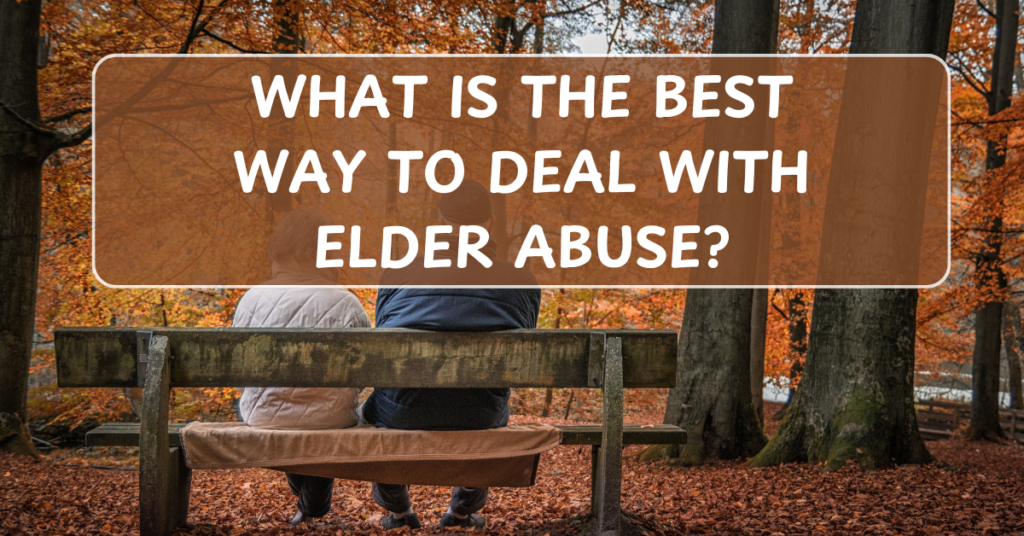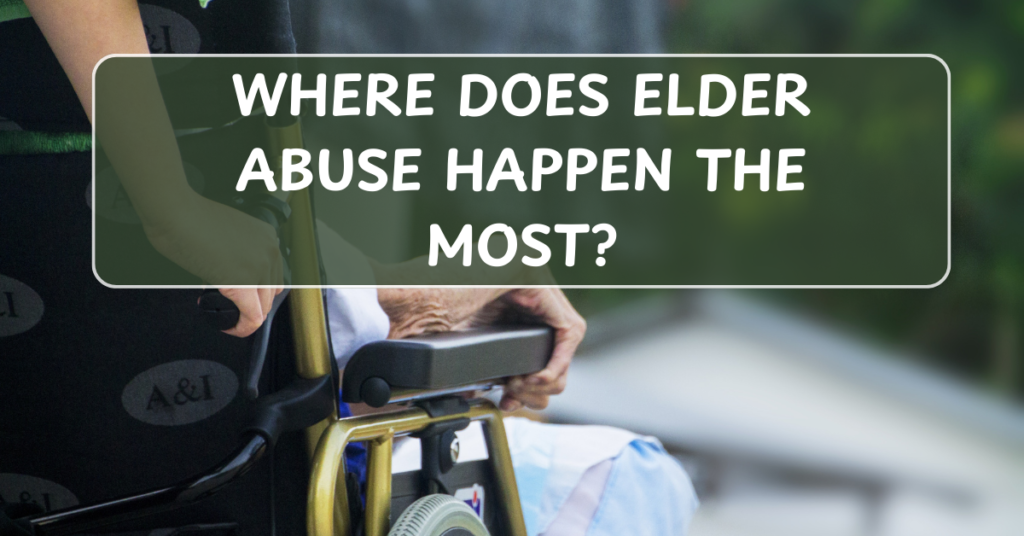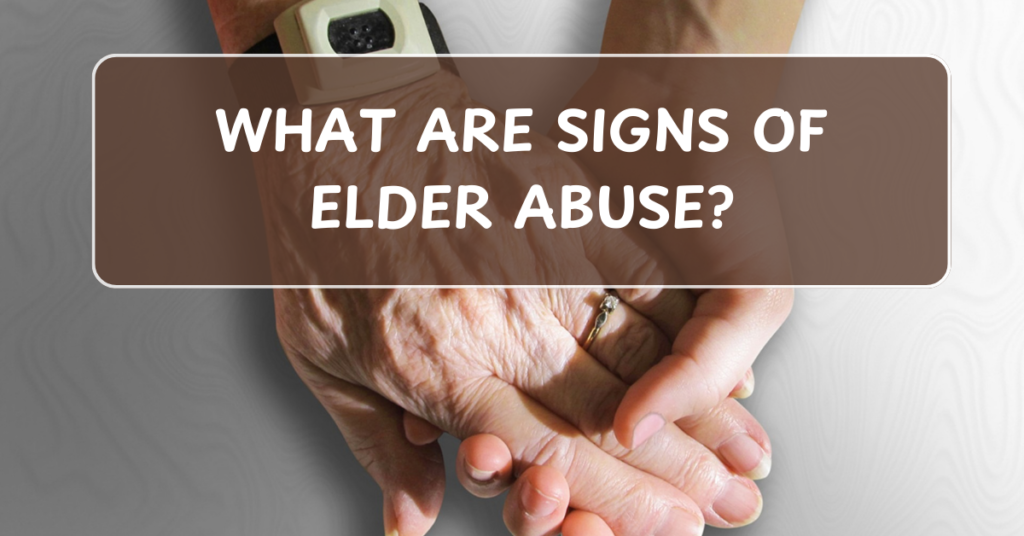
Elder abuse is a serious issue that affects millions of older adults each year. It can take many forms, including physical, emotional, financial, and neglectful abuse, often perpetrated by those closest to the victim, such as family members, caregivers, or even trusted friends. Recognizing and dealing with elder abuse effectively is crucial for protecting the well-being and dignity of older adults.
1. Recognize the Signs of Elder Abuse
Before taking action, it’s important to identify the signs of elder abuse. Some common indicators include:
- Physical Abuse: Unexplained bruises, burns, or injuries, a history of frequent hospital visits, or reluctance to allow caregivers to leave the room during medical appointments.
- Emotional Abuse: Withdrawal, anxiety, fear of a caregiver, or mood changes.
- Financial Abuse: Sudden financial problems, unexplained withdrawals from bank accounts, or the person being unable to account for their assets.
- Neglect: Poor hygiene, malnutrition, dehydration, or unsanitary living conditions.
- Sexual Abuse: Bruising around private areas or reports of inappropriate touching.
2. Ensure Immediate Safety
If elder abuse is suspected or detected, the first step is ensuring the safety of the elderly person involved. If they are in immediate danger or experiencing physical harm, take immediate action:
- Call 911: If you suspect physical abuse or that someone is in immediate danger, contact emergency services right away.
- Remove from the Harmful Situation: If possible, remove the elderly person from the abuser’s environment or any situation where they are at risk.
3. Report the Abuse
Reporting elder abuse is essential for stopping it and preventing further harm. There are several ways to report abuse:
- Adult Protective Services (APS): In many countries, APS is the agency responsible for investigating allegations of elder abuse. You can contact APS to report abuse anonymously if needed.
- Police or Local Authorities: If the abuse is of a criminal nature, such as physical harm or financial exploitation, contacting the police may be necessary.
- Healthcare Providers: If you are in a healthcare setting, healthcare providers (e.g., doctors or social workers) can often report and intervene.
- Elder Abuse Helplines: Many countries have dedicated helplines for elder abuse, where you can get advice, report abuse, or seek referrals for support services.
4. Support the Victim Emotionally and Physically
Victims of elder abuse often feel isolated, ashamed, or afraid to speak out due to fear of retaliation or not being believed. Emotional and practical support from loved ones is crucial.
- Listen Without Judgment: Allow the elder person to express themselves at their own pace. Validate their feelings and offer reassurance.
- Be Patient: It may take time for the victim to feel safe enough to disclose the abuse. Avoid pressuring them to talk but be there when they’re ready.
- Assure Them They Are Not to Blame: Remind them that they are not at fault for the abuse and that there are people who care about them and are ready to help.
5. Involve Legal Authorities and Advocacy Groups
In cases of financial abuse, physical harm, or legal matters, involving legal authorities and professionals is necessary.
- Legal Advice: A lawyer with experience in elder law can assist in safeguarding the person’s rights and help with legal actions, such as restraining orders or managing financial affairs.
- Advocacy Organizations: There are numerous organizations dedicated to advocating for the rights of older adults and supporting them through the legal and medical systems.
6. Arrange for Alternative Care
If the abusive situation involves a caregiver or family member, alternative care arrangements may need to be made to ensure the safety and well-being of the elderly person.
- Caregiver Change: If a caregiver is responsible for the abuse, it may be necessary to find a new caregiver who is compassionate and professional.
- Assisted Living or Nursing Homes: In some cases, moving the elderly person to a facility where they can receive 24/7 care and supervision might be the best option.
- Home Health Aides: If the elderly person is living independently, consider hiring a home health aide through a reputable agency to provide proper care.
7. Educate and Empower the Elderly
Helping elderly individuals understand their rights and the available resources can be empowering.
- Provide Information: Teach them about what elder abuse looks like and encourage them to speak up if they are ever in an unsafe situation.
- Empower Their Decision-Making: Whenever possible, involve them in the decision-making process about their care and safety. This helps restore a sense of control and dignity.
8. Prevent Future Abuse
To help prevent future instances of elder abuse, long-term monitoring and proactive steps are necessary:
- Ongoing Support: Regular visits from family members or trusted friends can ensure that the elderly person remains safe and is not isolated.
- Caregiver Training: Educating caregivers about elder care, stress management, and the importance of empathy and respect can reduce the likelihood of abuse.
- Financial Protections: Implement financial safeguards, such as setting up power of attorney with a trusted individual or using direct deposit for funds, to protect against financial exploitation.
9. Seek Professional Counseling for the Elder and Family
Elder abuse often creates emotional trauma not only for the victim but also for the family members involved.
- Therapy and Counseling: Both the victim and their family members can benefit from therapy or counseling to heal from the emotional scars of abuse.
- Support Groups: Support groups for both victims and family members can offer a sense of community, practical advice, and emotional support.
Conclusion
Dealing with elder abuse requires vigilance, compassion, and prompt action to protect the victim from further harm. Whether through reporting the abuse, seeking alternative care, or providing emotional support, the key is to act quickly and effectively. Remember that elder abuse is a crime, and no one deserves to suffer at the hands of those who are supposed to care for them. It’s important to educate ourselves about the signs of abuse and take action whenever necessary to ensure the safety and dignity of older adults.
If you suspect elder abuse or need support, reach out to local authorities, Adult Protective Services, or a helpline for assistance.


